- Home
- Scott Turow
Reversible Errors Page 28
Reversible Errors Read online
Page 28
“Right now, I’d say no,” said Muriel. “But I don’t want to keep chasing your client over hill and dale to get a straight answer.”
Marta nodded several times, then turned to Arthur. He was startled and uncertain what to think. For the time being, he reminded Marta that this was a capital case. He said he’d let the issue go as long as he could, but he reserved the right to re-examine it, if on reflection he thought it could materially aid Rommy.
“Of course,” said Marta.
Once they were done, Marta, Arthur, and Muriel returned to the conference room, and Marta called her client outside. When Genevieve resumed her seat beside the court reporter, she mouthed, “Thank you,” toward both lawyers. She still appeared unsettled and had her purse in her lap and a hankie in one hand.
Muriel did not appear much pacified by Genevieve’s gratitude. In fact, with time she seemed to have grown vexed. She bounced on her chair several times settling in. Arthur suspected Muriel felt Marta had shortchanged her in their conversations beforehand.
“Back on the record,” Muriel said. “A man whose name you didn’t know had come in looking for Luisa Remardi some time in May of 1991—is that the correct time frame?”
“It is.”
“And this man said something about Pharaoh or the Pharaoh. You then told Erno Erdai what that man said and Luisa Remardi was angry you had done so and therefore explained to you who Pharaoh was and the nature of their relationship. That’s the basic outline?”
“Correct.”
“Did she tell you Pharaoh’s last name?”
“No.”
“Did she say whether that was a nickname?”
“No.”
“Did she tell you where Pharaoh lived or worked?”
“I don’t know anything else about him. Once Luisa told me what they were doing together, I didn’t want to hear another word. Frankly, the only thing I was curious about was how they were getting away with it. I’d never heard of anything like that working in the long run. But I decided I didn’t even care to know that.”
“And this man who came in—did Luisa Remardi explain what his connection was to Pharaoh and her?”
“He’d introduced them.”
“I see. And did he have any participation in the enterprise in which Luisa Remardi and Pharaoh were engaged?”
“Luisa said he’d wanted a share, but he didn’t get it.”
Muriel muttered “Mmm-hmm.” She’d already figured as much. Arthur replayed it for himself. This third man had been the connect. He’d put Luisa in touch with Pharaoh to fence the tickets and was looking for a piece of the play, which he didn’t receive.
“Now I want to be sure I have this right. You had no idea who Pharaoh was or what Ms. Remardi’s relationship was with him until she explained that to you the day after this other man appeared? Right or wrong?”
“Completely right.”
“And if you didn’t understand the nature of Ms. Remardi’s relationship with Pharaoh, why did you tell Erno Erdai what the man said?”
“Because Erno was the head of security.” Marta, on the other side of her client, made a subtle movement and Genevieve lifted her chin to Muriel. “Because the man had made threats against Luisa.”
“Specific threats? Specific actions?”
“Yes.”
“And what action did he threaten?”
Genevieve’s eyes wilted toward her hands, now covering her purse in her lap.
“He said he was going to kill her.”
Arthur’s vision jumped, as if a film had skipped frames. Muriel, never nonplussed, sat with her mouth open.
“Erno Erdai said that?”
“The man who had come in that night said it.”
Growing agitated, Muriel re-arranged herself in her chair, shook her shoulders, straightened her neck. Then she stared down Genevieve, speaking to her stiffly.
“Now I’m going to ask a question, Mrs. Carriere, and I expect you to answer bearing in mind that the oath you took requires you to tell the whole truth. Do you understand?”
“Yes.”
“Tell me everything that man who came in said to you.”
“He asked for Luisa and I said she wasn’t there. And he was upset. And he said something like, ‘You tell her I just saw Pharaoh, and she can’t do this to me, and when I find her, I’m going to kill her.’ And naturally I was concerned for Luisa. Going off shift, I saw Erno and I thought Erno, as head of security, should know that. So I told him.”
After the court reporter’s machine had stopped clicking to record the answer, there was full silence. The momentousness of what he’d just heard stole in on Arthur. Luisa had been involved in dirty business with someone named Pharaoh, and a third man. And the third man had said he was going to kill her. There was a whole other circle to this case, a ring of crime and possible conspiracy, which had nothing to do with Rommy and not much to do with Erno either. And it was all good news for Romeo Gandolph. With multiplying suspects, no one could have the certainty required to put poor Rommy to death.
Muriel, too, clearly fathomed the damage she had sustained. Her small face was screwed up tight. Muriel could be mean.
“Now, this man said he was going to kill Luisa Remardi about two months before she was murdered, is that right?”
“Yes.”
“And after Ms. Remardi was murdered, Detective Starczek, who’s sitting right here, came out and questioned you about this case. Twice, as a matter of fact. Do you remember?”
“Yes.”
“And you never told him, did you, that there was a man who had come into DuSable Field and threatened Luisa Remardi’s life?”
“He didn’t ask. And I didn’t think it had anything to do with her murder. When I’d told Luisa about it, she’d laughed it off. She was sure he was just talking.”
“Of course not,” said Muriel, “why should you think it had anything to do with Luisa’s murder? A man says he’s going to kill her and she gets killed. What possible connection could there be?”
“I object to that,” said Marta.
“You object?” asked Muriel. She pointed at Larry. “Go look in the hall,” she said. “Maybe there are six or seven more people out there who want to say they killed the three of them.”
“And I certainly object to that,” said Marta.
“I need to adjourn,” said Muriel. “I’in too angry to continue.” Her head bounced around like a bobble toy’s.
Always quick-tempered, Marta flared up at once. She and Muriel had agreed to a two-hour dep. Genevieve was not coming back. The women warred for a moment while Arthur looked on. As far as Marta was concerned the deposition was over.
“The hell it is,” answered Muriel. Genevieve, she said, was far too consequential a witness to be dealt with summarily. Now that Muriel knew that, she wanted time to investigate before continuing.
Sitting there, Arthur struggled to think it through. The discovery period the Court of Appeals had authorized was over tomorrow. Muriel, clearly, was hoping to move to extend the deadline. And Arthur just as surely did not want her to succeed in doing that. With discovery closed, this new piece of information would guarantee that the Court of Appeals would allow Rommy’s habeas to go forward. Indeed, Kenton Harlow, finally empowered to actually decide the case, might quickly grant Rommy a new trial on the basis of Erno’s testimony and Genevieve’s. Arthur tried to play peacemaker, in hopes of bringing the deposition to a conclusion.
“What do you need to investigate?” he asked Muriel.
“Well, for one thing, I’d like some clue about this mystery man who comes in and threatens to kill Luisa.”
“What can Mrs. Carriere possibly add? She’s already given you a physical and said she didn’t know the man’s name.”
The court reporter interrupted to ask if this was on the record. Arthur said yes and Muriel said no.
“Oh, for crying out loud,” said Arthur. “On the record: Mrs. Carriere, is there anything you can tell us tod
ay that will help us identify this man who said he was going to kill Ms. Remardi?”
He thought he’d asked this as kindly as he could, but Genevieve fixed him with a bitter look.
“I’d rather stop now,” she said. “I can’t tell you how upsetting this is. It was all so crazy.” Genevieve had never surrendered her handkerchief and she looked down to be certain it was at the ready.
“Perhaps you can just say yes or no to my question,” said Arthur, “and we can be done.”
What flashed very briefly from Genevieve toward Arthur was raw enough to be hatred. It seemed out of character, but in that look of loathing she’d found his enduring vulnerability, and Arthur flapped a hand against his side.
“Okay,” he said. “I’ll agree to adjourn.”
The next voice seemed to come from nowhere.
“I think she should answer that question right now.” It was Larry.
They all turned to him. The court reporter’s hands were poised over the long keys of the steno machine, uncertain if he should take down an interruption from a non-attorney. Muriel in the meantime was staring at Larry with sufficient wrath that Arthur was surprised she had not simply belted him.
“Make her answer,” Larry told Muriel. There was a moment between them, some test of faith, Arthur could see. Then Muriel relented.
“Okay,” said Muriel. “Answer.”
Genevieve instead faced Marta. Marta scooted her chair an inch or two closer to her client and covered Genevieve’s hand with her own, waiting for her to compose herself.
“I think this is all pointless,” said Genevieve. “None of this is going to help those girls. And with Erno now, no one’s going to know anything for certain.”
“Move to strike as nonresponsive,” said Muriel. “Answer the question. Do you know anything that will help identify the man who said he would kill Luisa Remardi?”
“It’s my question,” said Arthur. “I’ll withdraw it.” He had no idea what he was doing, except instinctively pulling as hard as he could against Muriel.
“I’ll re-pose it,” said Muriel.
“It’s not your turn,” said Arthur. “And we just agreed to adjourn.”
“Let’s finish,” said Muriel. Through the brief byplay, she had never removed her eyes from Genevieve, who seemed powerless to do anything other than stare back, notwithstanding a leakage of tears.
“You didn’t ask if I knew him,” she said to Muriel. “You asked if he gave his name. And he didn’t. But I’d seen him before. Around the airport. And I know his name now.” She turned then to Arthur, and in the utter gravity of Mrs. Carriere’s large brown eyes, he suddenly comprehended the meaning of her warning glances and the depth of his foolishness.
“It was your client,” she said to him. “Mr. Gandolph. He’s the man who said he was going to kill Luisa.”
PART THREE
Decision
25
JUNE 29, 2001
He Did It
ARTHUR DID HIS BEST to escape from the Sterns’ overdone offices alone, but Muriel and Larry arrived while he was still awaiting the elevator, and in neutered silence the three stood in front of the crafted brass doors. Muriel eventually said something about filing a motion to dismiss in the Court of Appeals, but Arthur did not have the stuff to respond, or even to listen. He let them go down ahead of him when the first car arrived.
A few minutes later, he reached the entry to the Towers, where a fan of steel and glass swelling overhead offered protection from a sudden summer downpour. Arthur peered out, then walked into the rain, traveling more than a block before he noticed he was getting wet. He ducked into the doorway of another Center City building and then, after a moment in which he once more fell into agitated reflection, started through the storm again. He had to get back to the office. He had to tell Pamela. It occurred to him, in time, that he was hungry and weary and needed to pee. Yet as he was pelted, all he could hold in mind was Mrs. Carriere’s final answer. Your client. Mr. Gandolph. He chewed her words down to a vile, indigestible remnant, until he felt obliged to accept the obvious and find dry ground. Then in a few minutes, he was hurtling forward again, walking out of desperation, as if, in another location, her testimony might mean something else.
By now, Rommy existed in his mind solely as a woebegone innocent—and more important, he himself as the valiant champion of a just and miraculous cause. If Rommy was guilty, then Arthur’s world was different and gloomier, a place he had grown convinced he was no longer required to inhabit. Life again would be only hard work and duty.
Eventually, he found himself in front of Morton’s. Desperate by now, he stepped in, intending to look for the men’s room, but once through the doors he thought of Gillian, inspired by a peripheral impression of her fox-colored hair. Approaching the cosmetics counter, he saw no sign of her. He was sure it had been an illusion when she suddenly reared up before him, after replacing stock in the drawers below.
“Arthur.” Gillian stepped back with a long hand lying over her collar.
“He did it,” said Arthur. “I thought you should know. Muriel will leak it to everybody. You’ll hear soon. But he did it.”
“Who did?”
“My client. Rommy. He’s guilty.”
Gillian emerged through a small hatchway in the counter. She took Arthur by the elbow, as she might a wandering child.
“What do you mean, ‘He’s guilty’?”
Arthur described the deposition. “I can’t figure any of it out right now,” he said. “I feel like my brain’s been in the microwave or something. Where’s the washroom?”
She called to a colleague that she was taking her break, then steered him along, offering to hold on to his briefcase. Down the escalator was a coffee bar where she would wait for him.
A few minutes later, hoping to calm himself, Arthur took stock in front of the mirror over the bathroom sinks. His hair had more or less washed off his head and, under the intense fluorescents, looked like an ink spill. His gray suit was soaked black across the shoulders. No wonder Gillian had jumped at the sight of him. He looked like a homeless person rolled out of a gutter.
Outside, he briefly phoned Pamela, assuring her that the news was every bit as bad as it sounded, then rode the escalator down to the small coffee bar Morton’s had recently opened in the basement as yet another lure to keep customers in the store. The effort was working well today. Although lunch was long over, most of the small white tables were occupied by ladies waiting out the rainstorm, with their shopping bags beside their knees.
A few feet ahead, Gillian sat with her back to him, finishing a cigarette. If nothing else, the sight of her removed him somewhat from the shock of Mrs. Carriere. In spite of his growing chill, and his current confusion, Gillian, as a figure, continued to inspire in him both excitement and hunger. But he could not pretend she had not achieved some of what she intended with her revelations the last time he saw her. It was the vision of a demonized teenager, applying cigarettes to her flesh, which had haunted him. He could see her, very pale and thin, pushing the ember against the sensitive region inside her arm, and all along maintaining a solemn face despite the pain and the hideous pungency of her own smoking flesh.
Returning now, that image stopped Arthur in his tracks. He knew himself as a person of endless unsatisfied dreams. But overlaying the creature in perpetual adolescence was the man he had become in his thirties, neither a child nor a fool, someone who had begun to learn from his mistakes instead of repeating them to the point of infinity, someone who now could not only curb his yearnings but even leave them behind. In the last week and a half when he took a reprieve from work in the office to stare at the river, he had thought often of Gillian. Yes his heart swelled, yes he analyzed his conversations with her until they no longer remained intact in his memory, having grown jumbled with the sly interjections he imagined from himself thanks to the high-revving motor of his fantasies. But then his pulse slowed with a sense of the true risks facing him. He knew lo
nging well, but he was less schooled in heartbreak.
His divorce had been devastating. But he had married Marjya largely because she would have him. She was very pretty. And certainly bright. And Arthur was unrelievedly horny. But he did not live one of the forty or so days they spent together feeling he understood the first thing about her. He could not get her to close the door to the john, or to take pleasure in most American food. Who could have told him how hard it was to explain yourself to someone who’d grown up without a television set, who had only a vague idea of who Richard Nixon was, let alone Farrah Fawcett or Rubik’s Cube? Every instant was a surprise—especially the final one when she said she was leaving him for a countryman, a tile fitter no less.
How could she just abandon him, he asked, their life?
‘Ziss?’ she replied. ‘Ziss is nossink.’
That had been bad. But Gillian, as someone he aspired to in such an exalted way, no matter how foolishly, posed a danger far beyond what Marjya had wrought. In this world, he had next to nothing. But there was his Self—his fragile soul. A person as smashed and compromised as Gillian, a person who had been so conquered by her devils she could succumb to drunkenness and criminality and incestuous love and God knows what else—someone like that was as unpredictable as Susan. He had told Gillian he was not frightened of her. That had been dashing—and foolhardy. Afterwards, he had realized it was not wholly true. In the late afternoons, when he turned from his desk and let his mind escape on the scales of orange light on the river, the thought of Gillian also brought a cool realization of the way love could become a catastrophe.
Standing still in the store basement, he thought it all through one more time. Then he continued ahead. He could only be himself, which meant pursuing the chance, no matter how slight, to be with someone he dreamed of, to vault the unconquerable distance between what lived only in his mind and what actually was. Like food and health and shelter, everyone, he believed, was entitled to that.

 Testimony
Testimony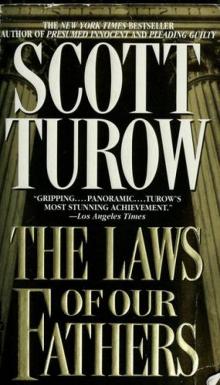 The Laws of Our Fathers
The Laws of Our Fathers Ordinary Heroes
Ordinary Heroes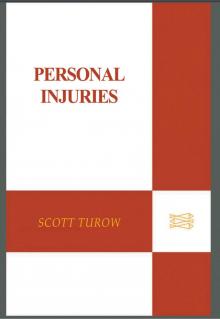 Personal Injuries
Personal Injuries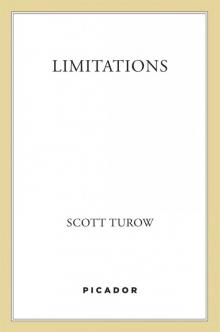 Limitations
Limitations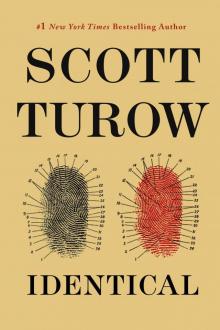 Identical
Identical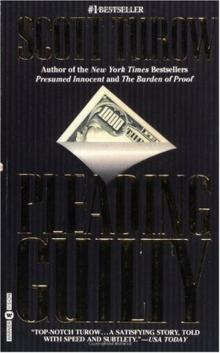 Pleading Guilty
Pleading Guilty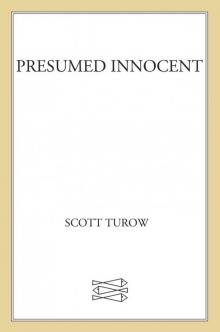 Presumed Innocent
Presumed Innocent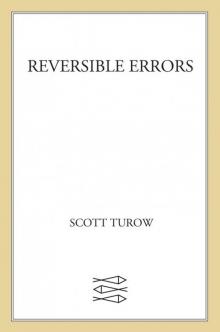 Reversible Errors
Reversible Errors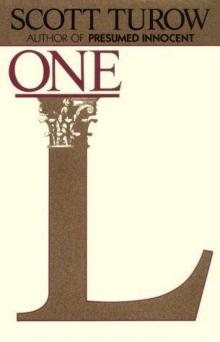 One L: The Turbulent True Story of a First Year at Harvard Law School
One L: The Turbulent True Story of a First Year at Harvard Law School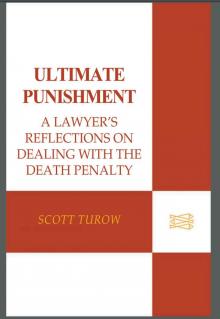 Ultimate Punishment
Ultimate Punishment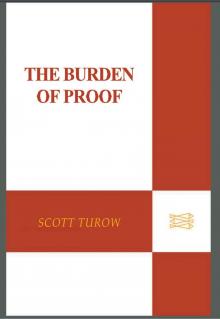 The Burden of Proof
The Burden of Proof Ordinary Heroes (2005)
Ordinary Heroes (2005)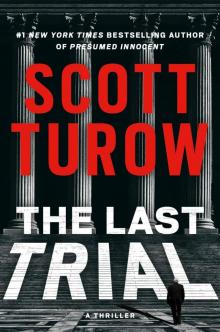 The Last Trial
The Last Trial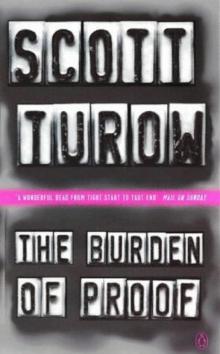 The Burden of Proof kc-2
The Burden of Proof kc-2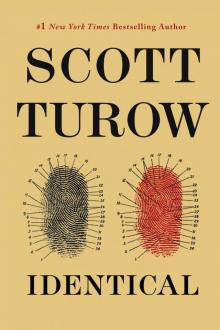 KC09 - Identical
KC09 - Identical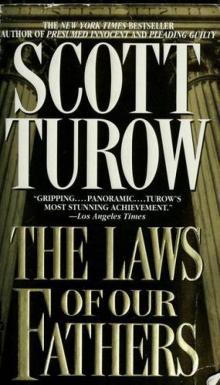 The Laws of our Fathers kc-4
The Laws of our Fathers kc-4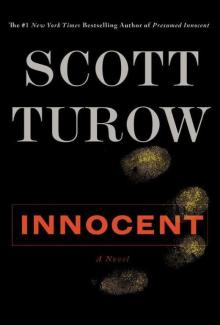 Innocent kc-8
Innocent kc-8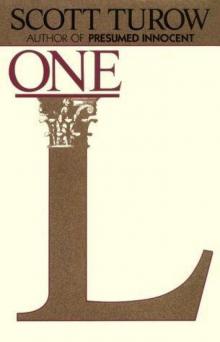 One L
One L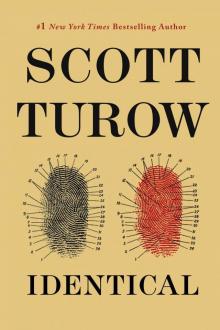 Identical kc-9
Identical kc-9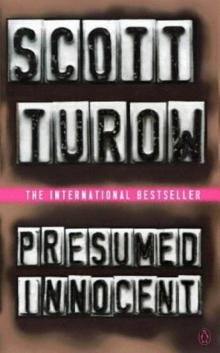 Presumed innocent kc-1
Presumed innocent kc-1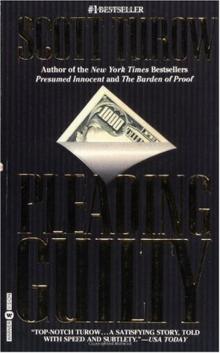 Pleading Guilty kc-3
Pleading Guilty kc-3 One L (1977)
One L (1977)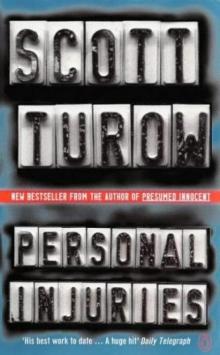 Personal injuries kc-5
Personal injuries kc-5